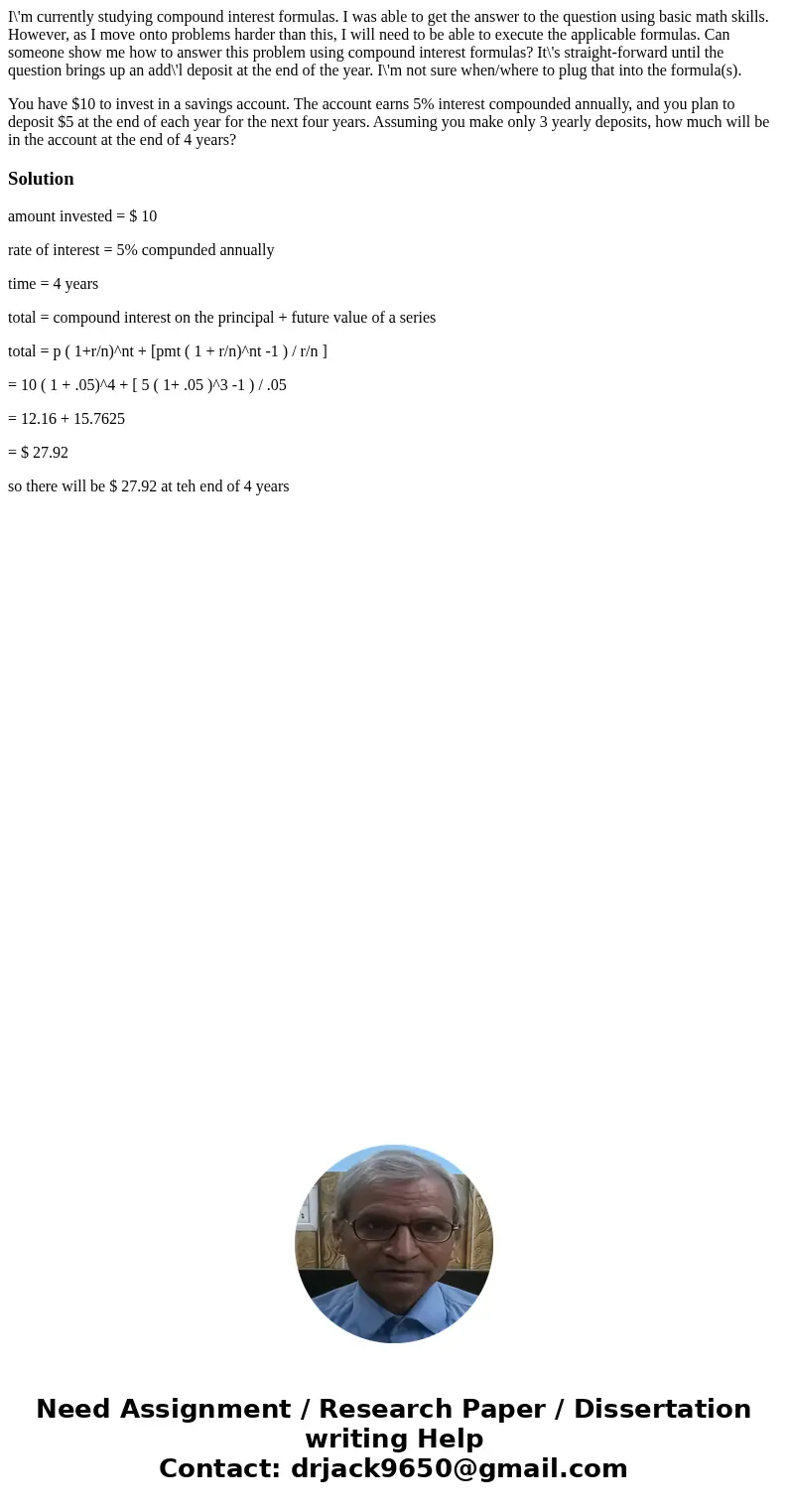Im currently studying compound interest formulas I was able
I\'m currently studying compound interest formulas. I was able to get the answer to the question using basic math skills. However, as I move onto problems harder than this, I will need to be able to execute the applicable formulas. Can someone show me how to answer this problem using compound interest formulas? It\'s straight-forward until the question brings up an add\'l deposit at the end of the year. I\'m not sure when/where to plug that into the formula(s).
You have $10 to invest in a savings account. The account earns 5% interest compounded annually, and you plan to deposit $5 at the end of each year for the next four years. Assuming you make only 3 yearly deposits, how much will be in the account at the end of 4 years?
Solution
amount invested = $ 10
rate of interest = 5% compunded annually
time = 4 years
total = compound interest on the principal + future value of a series
total = p ( 1+r/n)^nt + [pmt ( 1 + r/n)^nt -1 ) / r/n ]
= 10 ( 1 + .05)^4 + [ 5 ( 1+ .05 )^3 -1 ) / .05
= 12.16 + 15.7625
= $ 27.92
so there will be $ 27.92 at teh end of 4 years

 Homework Sourse
Homework Sourse